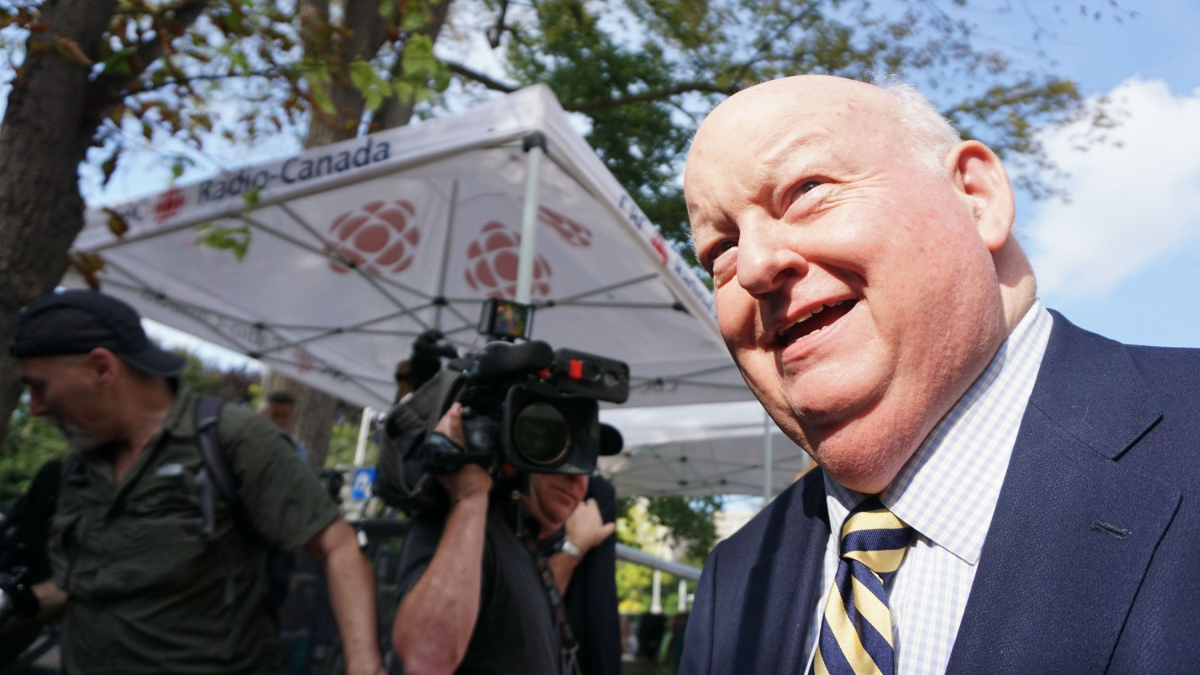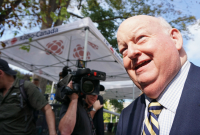Support strong Canadian climate journalism for 2025
The latest in the saga of Sen. Mike Duffy and his Senate expenses appears ready to end with the upper chamber poised to claw back almost $17,000 in disputed expense claims that Duffy says were perfectly legitimate.
Duffy’s lawyer wrote to the Senate this week to say the senator won’t repay seven of his claims totalling $16,955 because they were deemed "appropriate" by an Ontario judge who acquitted Duffy of 31 criminal charges in April.
The decision means the Senate committee in charge of policing spending will likely move to withhold the money from Duffy’s salary so that the Senate can recoup the cash it believes Duffy shouldn’t have been allowed to claim.
It also ensures that one last flame burns in the Senate expense scandal — despite Duffy’s sensational acquittal, the return this week of Sen. Patrick Brazeau after charges were dropped, and word that the RCMP is set to close the remaining few files of senators named in the auditor general’s report without facing charges.
The Senate decided last month that it wanted the money back from Duffy after taking a second look at seven claims totalling $16,995. Senate officials said they were taking a second look at the eligibility claims because of new information that “had surfaced in the public domain.”
The claims range from $10,000 for a personal trainer to $8 for personal photos.
At the time, Duffy’s lawyer Donald Bayne gave the Senate a pointed response, calling senators vindictive for going after just $8, for instance, even after his client had been “fully exonerated” on the seven expenses in question. Bayne called the Senate’s persistence “a further compounding of injustice upon injustice (that) should be stopped.”
In acquitting Duffy in April, Ontario Court Justice Charles Vaillancourt said the senator’s actions weren’t criminal, even if they raised eyebrows. The Crown later said it would not appeal the verdict.
The Senate saw the ruling differently than Bayne and Duffy: Vaillancourt was ruling on criminal matters; the Senate was dealing with an administrative matter.
The Senate gave Duffy the option of taking the dispute to arbitration in front of former Supreme Court justice Ian Binnie who would decide whether the expenses were legitimate and how much Duffy would have to repay.
It was the same option given to the 30 senators named in the auditor general’s audit as having questionable spending.
"This is not merely an administrative matter between Senator Duffy and Senate finance; it is a matter that has factually been determined in a court of law — the seven impugned expense items were all found to be ’appropriate’ within Senate rules and policies," Bayne wrote in the letter sent to the Senate on Tuesday.
"Senator Duffy’s position is in no way similar or equal to the other 30 senators, none of whom had a court of law rule that their specific expenses were appropriate."
Bayne writes that Duffy won’t take part in the arbitration process because he does not want to "legitimize" a process that is "an improper collateral attack" on his acquittal.
"Nor will Senator Duffy ’repay’ expenses that a Canadian court of law has held were ’appropriate’," Bayne wrote.
The Senate wouldn’t say when it would start the process of clawing back Duffy’s Senate salary. Any such decision to do so would have to be made public under the dispute resolution system set up last year. Jacqui Delaney, a spokeswoman for committee chairman Sen. Leo Housakos said the Senate "has a clear process in place that is fair."



Comments